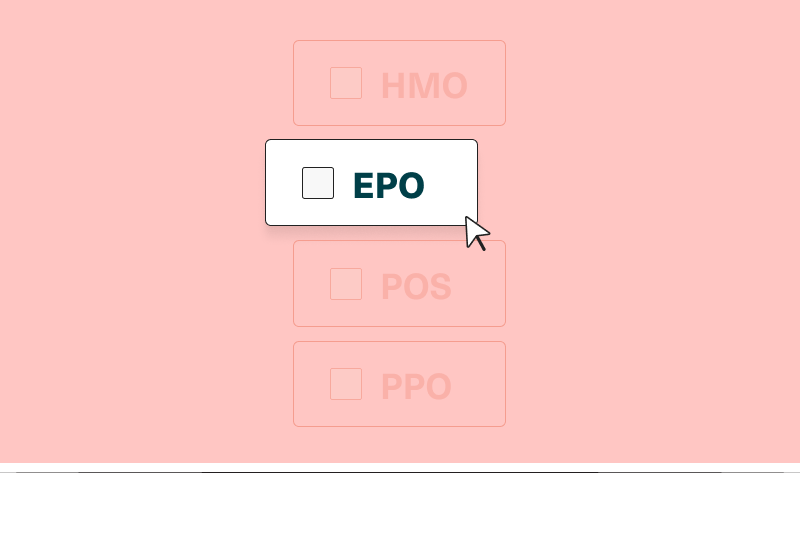How can group health insurance brokers save small businesses money?

As a group health insurance broker or benefits advisor, it can be difficult to find money-saving solutions for small group clients. Most health insurance plans were simply not designed with the needs of small businesses in mind.
The fully-funded health plans that account for the bulk of big-name insurance carriers’ business have historically favored large groups. Small businesses pay 8% to 18% higher premiums than large ones for the same health insurance policy. This is because they lack the buying power of large firms, and they have smaller populations over which to balance risk factors. More employees = more cash flow and less risk for insurance companies.
On top of charging small businesses more to begin with, the legacy insurance companies tend to impose high premium hikes year over year. According to a recent survey, one in five small businesses that use Blue Cross Blue Shield, United Healthcare, Cigna, Aetna, or Humana reported rate increases higher than 10% last year. With employee health insurance being a business’ second-largest expense after payroll, such high rate increases are untenable.
On the other hand, it is not feasible for most small businesses to avoid this problem altogether by completely self-funding their health insurance. The Fortune 500 can take the risk of self-funding their healthcare because any unexpected claims costs are easily absorbed by a large employee population — and the reward of avoiding carriers’ inflated (and ever-increasing) premiums tends to greatly outweigh the risk of high claims. Many can also contain healthcare costs through other measures, such as building and staffing their own onsite health clinics.
But for businesses with only a few employees, all it would take to completely capsize the healthcare budget is one or two employees getting emergency surgery. And affording something like an onsite clinic is out of the question for the smallest firms.
So, how can health insurance brokers for small businesses protect clients from exorbitant healthcare costs? Check out the three tips below.
3 ways group health insurance brokers can save small businesses money
1. Steer small group clients in the direction of level-funded health plans.
Level-funding is a type of self-funded health insurance that can offer small group clients the significant savings of self-funding… without the significant risk. Health insurance brokers can help small business clients secure a level-funded health plan, for which they will pay a fixed monthly sum to an insurance company — exactly as they would pay a fixed premium for a fully-funded health plan.
The difference is that the monthly level-funding payment tends to be far lower than a fully-funded premium because it represents estimated monthly healthcare costs based on the employee population — plus an administrative fee paid to the insurance carrier or third-party administrator to issue and manage the plan. Premiums for fully-funded plans, on the other hand, are arbitrarily set by insurers. As discussed previously, insurers tend to wildly overestimate claims costs, particularly for small groups.
On level-funded plans, if healthcare claims in a given month come back lower than the estimate, the client gets a refund or a credit. If they come back higher, stop-loss insurance kicks in to cover the excess. This means that the client will never be responsible for paying more than they budgeted for.
Insurance brokers for small businesses can shop for level-funded plans from modern insurtech companies whose health plans were built specifically for small groups.
2. Plug small business clients into value-based, as opposed to fee-for-service, payment models.
Fee-for-service payment models reimburse providers for each individual healthcare service they perform, which incentivizes providers to perform a high quantity of services even if they are unnecessary or ineffective. By contrast, value-based payment models reward providers based on the quality, efficiency, and effectiveness of the care they deliver.
Insurance brokers can connect small group clients with insurers that use value-based payment models to reimburse providers. Examples include:
- Capitation payment — a reimbursement model used in primary care in which insurers pay providers a fixed amount of money per member per month (PMPM) based on the average expected healthcare utilization of the group
- Bundled payments — one-time payments that cover all of the services related to a single illness, injury, or condition, including all associated inpatient, outpatient, and rehabilitative services
Such reimbursement methods incentivize providers to avoid unnecessary services, keep costs down, and coordinate a patient’s end-to-end care experience. While it would be difficult to find an insurance company that utilizes these value-based models 100% of the time, there are insurers that incorporate them into their health plans. They might do so by offering free primary care to members at clinics that use capitation payment or offering free surgery to members at Centers of Excellence that use bundled payments.
3. Help small group clients secure a health plan that uses fair-value reimbursement to pay providers.
Wherever it is not possible to access value-based payment models, fair-value reimbursement (FVR), also known as reference-based pricing (RBP), is the next best thing. FVR is a form of fee-for-service payment that removes providers’ and hospitals’ ability to arbitrarily determine exorbitantly high “negotiated rates” for services — rates which often have no relationship to what it actually costs to perform those services.
FVR pays providers based on an established benchmark, such as Medicare reimbursement rates or the provider’s reported costs. Health insurance brokers for small businesses should seek out insurance options that use FVR, as it will keep claims costs lower and more predictable for clients. Many modern insurance companies offer FVR as a feature of their level-funded plans.






